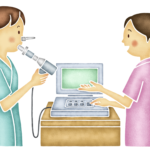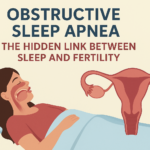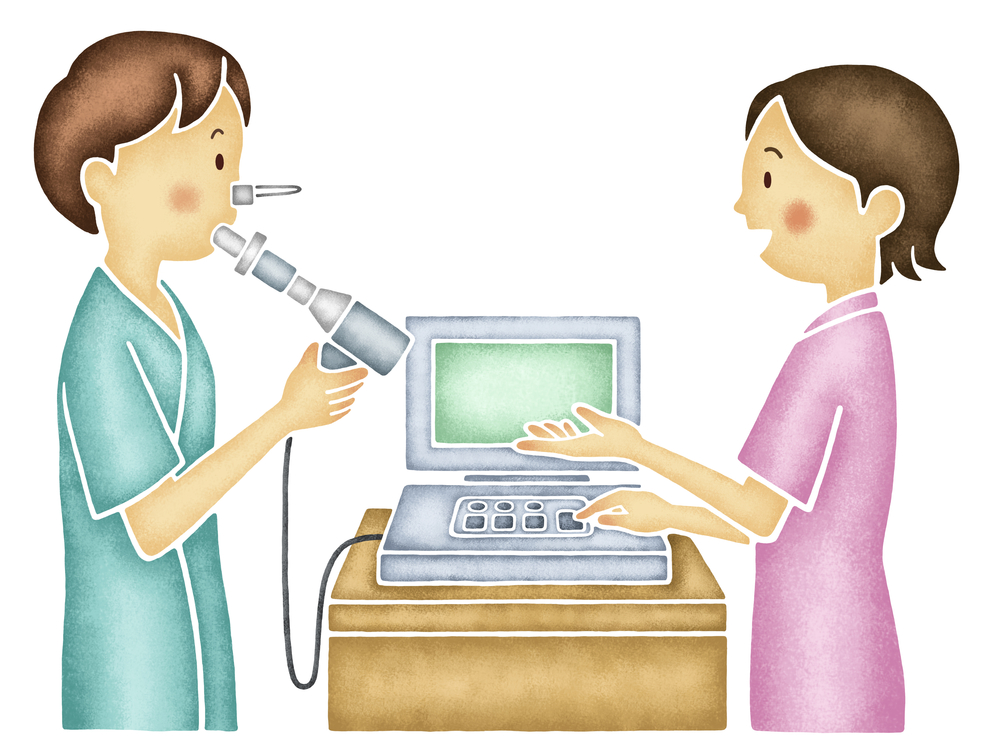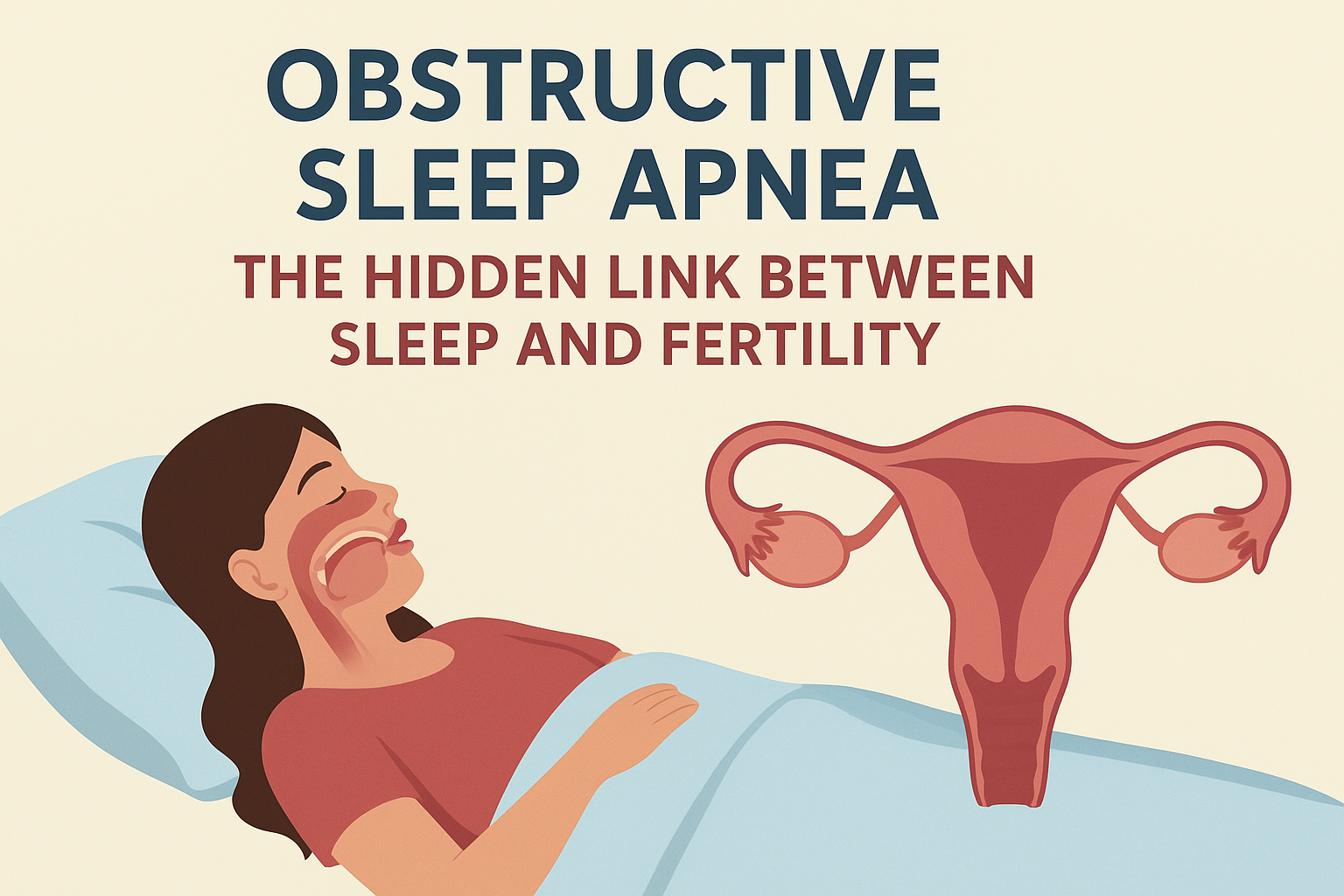
The inability to achieve a successful pregnancy after twelve months or more of timed, unprotected and appropriate intercourse or by therapeutic insemination by a donor is defined as infertility. It is also dependent on the age, medical history, and various treatment measures that a person must have gone through in life. It affects about 15% of the couples in their reproductive age throughout the world. In India, this ranges between 3.9 to 16.8%.
Sleep is an important factor that can affect fertility. In the current world, sleep deprivation is a very common problem. This adversely affects various aspects of our health which leads to a higher risk of diseases and also significantly contributes to infertility. The mechanism by which sleep deprivation is related to fertility is the circadian rhythm. The hormones involved in reproduction include thyroid stimulating hormone, luteinizing hormone and testosterone, all of which are regulated by the circadian rhythm. Hence, if the circadian rhythm is disturbed, the levels of reproductive hormones will definitely be affected. Sleep deprivation induces stress, which in turn activates the hypothalamus-pituitary-adrenal axis. This leads to a disruption in the levels of reproductive hormones.
Sleep and Male Fertility:
Approximately 7 to 8 hours of sleep is optimal for an adult. In a study by Liu et al., in 2017, less sleep led to inferior quality of sperm production whereas excessive sleep (more than 9 hours each day) tends to lower sperm count. This is mainly because the circadian rhythm in both cases is disturbed affecting both the sperm count and quality. Late bedtime is associated with lower sperm counts and survival.
Sleep and Female Fertility:
Women with self-reported poor sleep quality tend to suffer from premature ovarian failure. Five studies were conducted to assess the relationship between sleep duration and the regularity of the menstrual cycle. It concluded that women with short sleep duration(< 5 hours) were at a higher risk of irregularities of the menstrual cycle as compared to those who were sleeping for longer hours(>8 hours). Poor quality of sleep was also associated with other period problems such as longer menstrual flow and premenstrual syndrome. Also, insomnia doubles the incidence of menstrual irregularity. The circadian rhythm is involved in many reproductive processes which include folliculogenesis, ovulation, fertilization, and implantation. The Clock and the Clock-related genes negatively affect fertility as a result of sleep deprivation.
Shift work has deleterious effects on menstrual health. In a study involving about seventy thousand nurses, the women who went through more than 20 weeks of rotating shift work had a higher tendency of experiencing menstrual irregularities with abnormally long or short durations of the cycle.
Sleep in general influences the release of reproductive hormones in females. Sleep debt tends to disturb hormonal levels which influence fertility. It might lead to sexual dysfunction and a variety of other health issues such as type 2 diabetes, obesity, cardiovascular diseases, etc. which in turn negatively impacts fertility. With reproductive transitions happening regularly (i.e. menstrual, pregnancy, menopause), women are always at a higher risk of suffering from sleep problems. Also, the changes in hormone levels, mood, and lifestyle that accompanies these transitions increase their vulnerability to insomnia.
There are at least three possible pathways by which sleep disturbance may be related to infertility:
- Hypothalamic-Pituitary-Adrenal (HPA) activation:
The HPA axis is a major neuroendocrine system. It is responsible for controlling reactions to stress and regulating many body processes such as digestion, immune system function, mood, energy, etc. Stress leads to the activation of the HPA axis which can independently contribute to infertility and sleep dysregulation.
- Sleep Dysregulation:
Sleep dysregulation includes sleep fragmentation, disturbance in sleep continuity, and very long or short durations of sleep. It may occur after one has successfully conceived by manipulating the hormone levels. Insomnia may co-occur with HPA activation or independently may result in its activation, leading to infertility. Loss of sleep also makes our body immunologically compromised, thereby affecting conception.
- Circadian dysrhythmia has the potential to interfere with fertility because reproductive hormones show a circadian pattern under the conditions of normal sleep. For example, melatonin secretion follows the circadian rhythm and is also associated with fertility. Circadian dysrhythmia is very common in shift workers and is linked to the alteration in the secretion of reproductive hormones and adverse reproductive outcomes.
Sleep and reproductive endocrinology are deeply intertwined. The hormones involved include follicle-stimulating hormone(FSH), luteinizing hormone(LH), thyroid-stimulating hormone(TSH), estradiol, prolactin, progesterone, testosterone, melatonin, etc. which are affected by sleep disturbances. In the same way, fluctuating levels of these hormones tend to affect sleep.
Good quality of sleep is very important for a reproductively healthy life. Hence, it needs to be prioritized by taking care of simple things like sleep hygiene, dim light in the bedroom, going to bed regularly at the same time, etc. Also, seeking help from a health professional at the right time becomes important. Teenagers have a shift in sleep patterns and hormone levels when they hit puberty and the same is the case with women hitting menopause. At this time, they need a lot of care, support, and understanding from the people around them. One very significant measure is to educate the masses about sleep and fertility. This allows people in general to talk about the issues related to sleep and fertility on a larger scale and reach out to support groups and professionals to deal with the same.
References:
Beroukhim, G., Esencan, E., & Seifer, D. B. (2022). Impact of sleep patterns upon female neuroendocrinology and reproductive outcomes: a comprehensive review. Reproductive Biology and Endocrinology, 20(1), 1-17.
Caetano, G., Bozinovic, I., Dupont, C., Léger, D., Lévy, R., & Sermondade, N. (2021). Impact of sleep on female and male reproductive functions: a systematic review. Fertility and sterility, 115(3), 715-731.
Kloss, J. D., Perlis, M. L., Zamzow, J. A., Culnan, E. J., & Gracia, C. R. (2015). Sleep, sleep disturbance, and fertility in women. Sleep medicine reviews, 22, 78–87. https://doi.org/10.1016/j.smrv.2014.10.005










